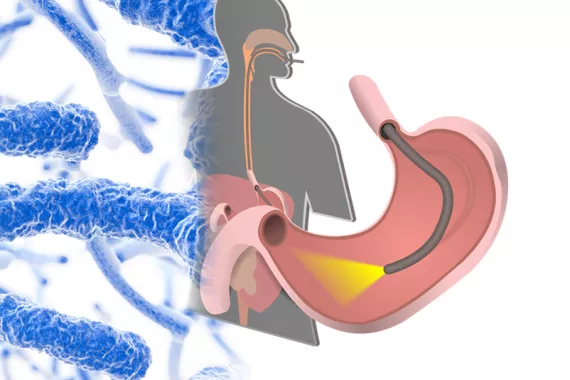
Case Overview
When you have a medical procedure, you should be able to count on the medical devices and equipment used in the procedure to be sterilized and safe for use. Unfortunately, at least 2 million people become infected with antibiotic resistant bacteria each year in the U.S., according to the CDC, some of whom fall ill after undergoing a medical procedure.
Motley Rice medical device attorneys are reviewing potential cases involving patients who became seriously ill following a medical procedure involving a duodenoscope. The FDA has reported that the complex design of duodenoscopes may impede effective reprocessing, or the cleaning, disinfecting and sterilizing of these types of scopes.
What is a Duodenoscope?
Duodenoscopes are flexible, lighted tools that are used during potentially lifesaving procedures to diagnose and treat problems in the pancreas and bile ducts. The bendable tubes are threaded through the mouth, throat and stomach into the top of the small intestine and provide visuals, used during endoscopic retrograde cholangiopancreatography (ERCP).
Problems reported with Duodenoscopes
According to the FDA, approximately 500,000 procedures are done each year in the United States with duodenoscopes. Duodenoscopes are critical to diagnosing and treating diseases, however if the many small parts are not thoroughly cleaned and disinfected the device may cause potentially fatal, patient-to-patient infections.
The infections that the scope have been reported to spread are considered antibiotic-resistant superbugs.
According to a report by the FDA, approximately 300 to 350 patients at 41 medical facilities in the U.S. and around the world were infected or exposed to tainted gastrointestinal scopes from Jan. 1, 2010 to Oct. 31, 2015. The U.S. Senate conducted its own investigation and released a report in January 2016 that found 250 patients were infected by tainted scopes at 25 medical facilities in the U.S. and Europe between 2012 and 2015.
Pentax Duodenoscope Recall
After being notified by the CDC in 2013 that design defects in certain endoscope and duodenoscope products may contribute to high multi-drug resistant bacteria rates in patients, despite cleaning recommendations being followed, the FDA began working with manufacturers to modify the devices and enhance safety. In February 2018, one such manufacturer Pentax issued a voluntary recall of its model ED-3490TK duodenoscope devices in order to make necessary design adjustments and update maintenance recommendations. The FDA approved the modifications and updated labeling for the product on Feb. 7, 2018.
Olympus Duodenoscope Background
In March 2014, the FDA sent a letter to Olympus highlighting a design change that it believed to contribute to sanitary issues and ordered it to obtain FDA clearance within thirty business days.
In February 2015, the FDA released a safety communication on duodenoscopes stating that the manufacturer-recommended cleaning procedures may not be sufficient to properly sterilize the instruments due to the design of the scope. That same year, the FDA was notified that Olympus Corporation failed to alert regulators that patients were developing superbug infections (sometimes referred to as CRE or carbapenem-resistent enterobacteriaceae) following procedures using the company’s duodenoscope, a type of endoscope.
Medical device manufacturers are required by the FDA to report serious problems within 30 days of learning about them. Olympus waited three years to report these infections. Hospital locations that have been implicated in duodenoscope-related outbreaks include UCLA’s Ronald Reagan Medical Center, Cedar-Sinai Medical Center, Virginia Mason Medical Center in Seattle, Advocate Lutheran General Hospital (suburban Chicago, IL), and UPMC Presbyterian (Pittsburgh, PA) and others.
In January 2016, Olympus recalled its original model duodenoscope.
Read more:
Law360 (Jan. 18, 2017): Pentax Medical Devices Carry Infection Risk, FDA Says
CBS News (May 5, 2016): Dirty scopes linked to more hospital deaths
FDA: Infections associated with reprocessed duodenoscopes
New York Times (April 18, 2016): Why Medical Devices Aren’t Safer
Bloomberg (April 18, 2016): Dirty devices are killing patients. Can Congress stop it?
Associated Press (April 15, 2016): Report: More infections from dirty scopes than estimated
CNN (April 15, 2016): Deadly superbug infections from tainted scopes greater than thought
NBC News (April 17, 2015): FDA says Endoscope makers failed to report superbug problems
FDA – Feb. 23, 2015: http://www.fda.gov/MedicalDevices/Safety/AlertsandNotices/ucm434871.htm
Start Your Motley Rice Consultation in Simple Steps
Submit Information
Call us or fill out our online form with the details of your potential case.
Case Review
Our team reviews your information to assess your potential case.
Case Consultation
Talk with us about next steps.

